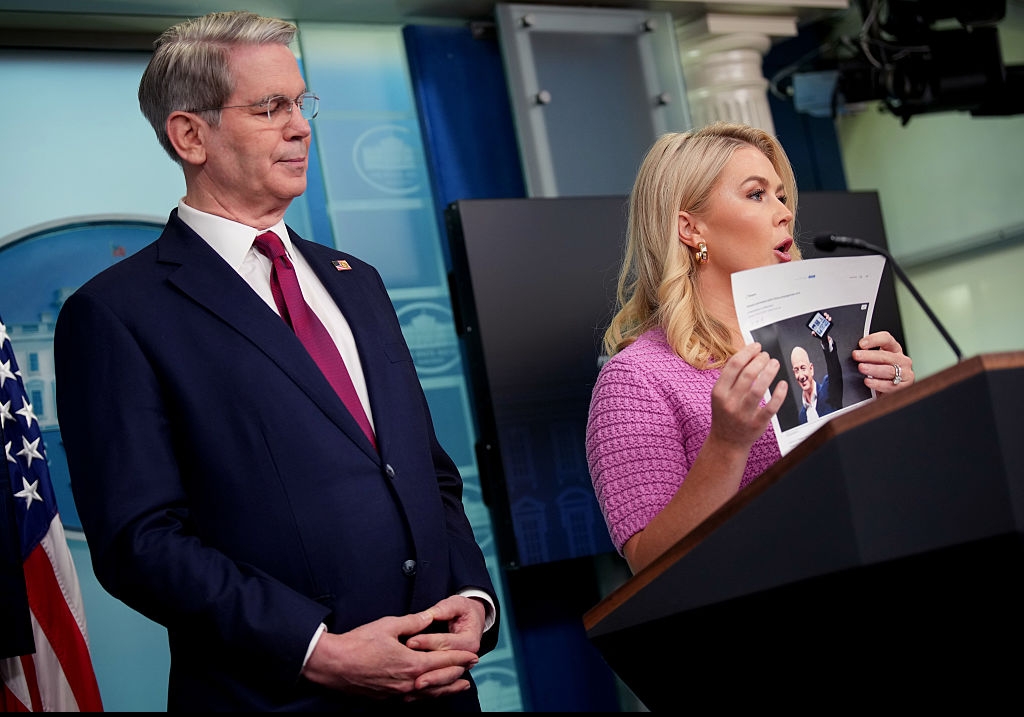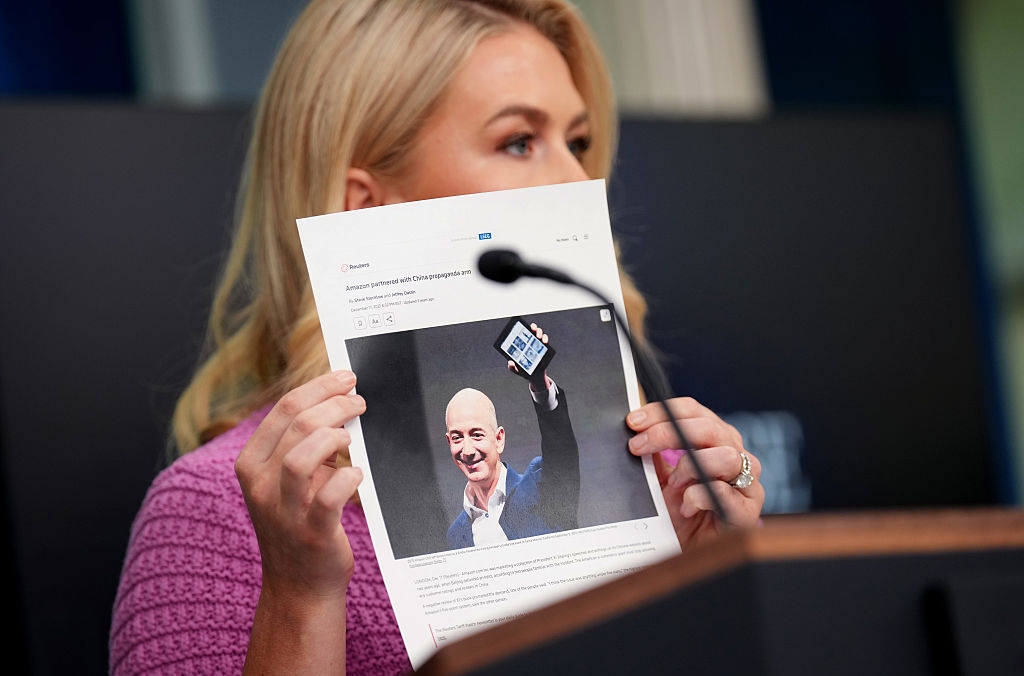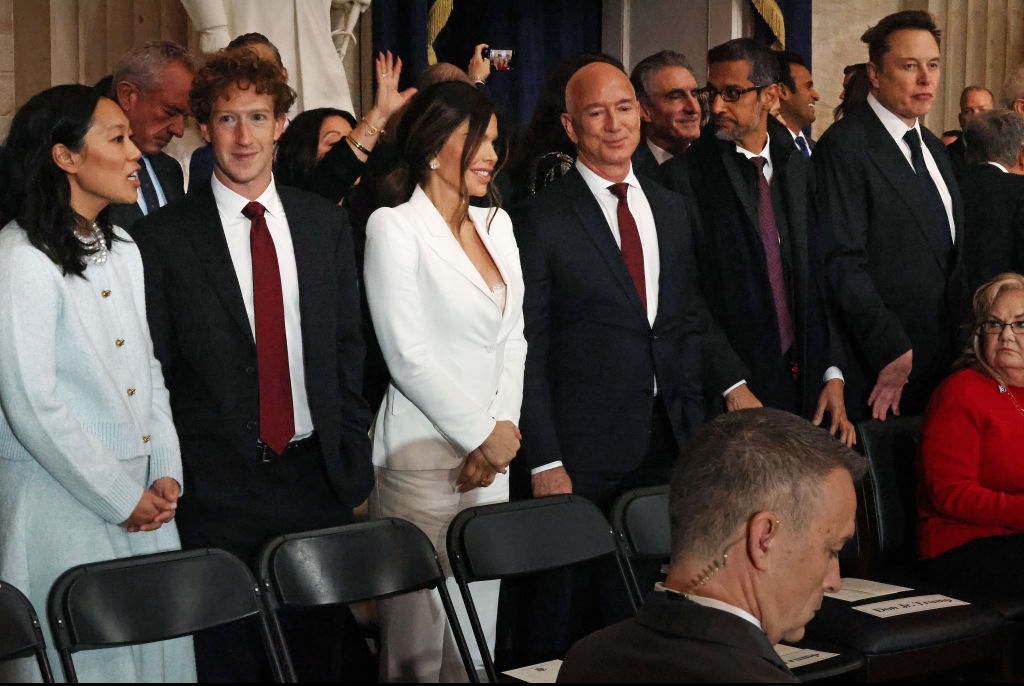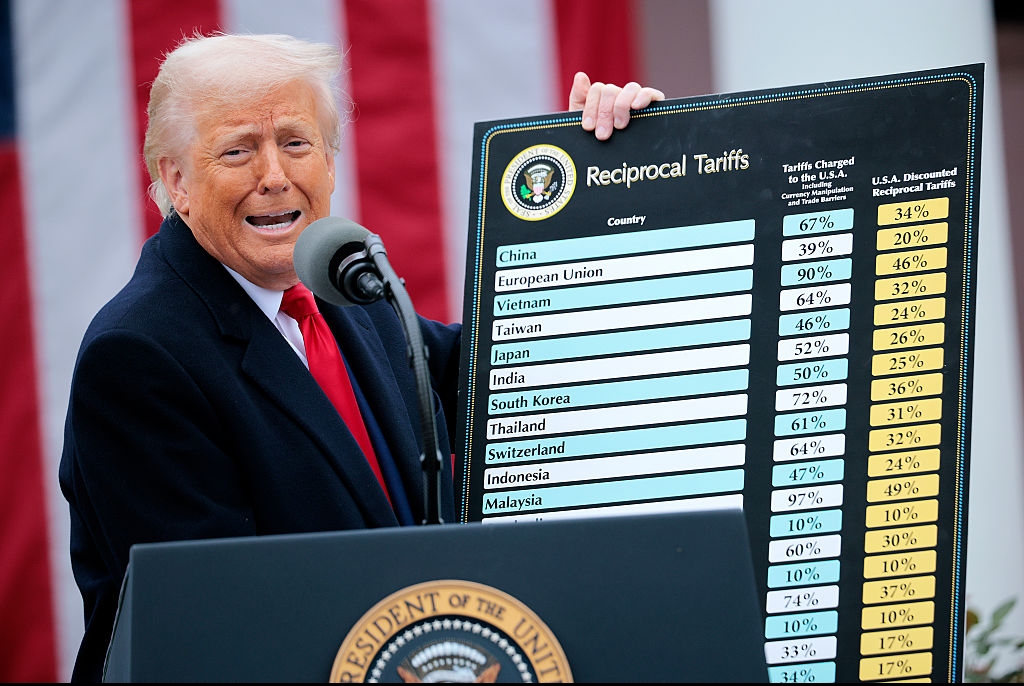White House slams Amazon for ‘hostile and political act’ to allegedly show cost of tariffs on items
The Trump White House has lashed out at Amazon after reports emerged that the online retail giant plans to show customers how much of their purchase price is made up of tariffs — a move the administration is calling both “hostile” and “political”.
According to reporting by the BBC, Amazon is preparing to break down the cost of Donald Trump’s tariffs within customer receipts, revealing just how much his sweeping trade policy is inflating prices at the checkout. The move could expose the hidden cost of tariffs — and shift the blame for rising prices away from Amazon and onto the government.

Press Secretary Karoline Leavitt didn’t mince words during a press conference on Tuesday.
“This is a hostile and political act by Amazon,” Leavitt told reporters. “Why didn’t Amazon do this when the Biden administration hiked inflation to the highest level in 40 years?”
Leavitt added: “I just got off the phone with the president about this, about Amazon’s announcement. This is a hostile and political act by Amazon.”
She then hold up a printed copy of a 2021 Reuters headline that read: “Amazon partnered with China propaganda arm.”

The fallout marks a dramatic escalation in tensions between Trump’s administration and Amazon’s founder, Jeff Bezos, reigniting a rivalry that’s simmered for years. Though Bezos appeared at Trump’s 2025 inauguration – alongside tech titans Elon Musk and Mark Zuckerberg – the relationship appears to have frayed amid accusations of political bias and corporate interference.
Although, Bezos’s recent moves to refocus The Washington Post — which he’s owned since 2013 — around “personal liberties and free markets” appeared to show the opposite. The paper has been known for its endorsements of Democratic candidates in previous elections, and its absence from last year’s endorsement race appeared to be one more in favor of Trump, per The Telegraph.

Meanwhile, Amazon isn’t the only retailer shining a light on tariff costs. Chinese e-commerce platform Temu has begun detailing U.S. import charges in its receipts as well, per CNBC.
Leavitt used the moment to push Trump’s “America First” trade agenda, urging Americans to “buy American” and back efforts to relocate key manufacturing and supply chains. “It is another reason why we are on-shoring critical supply chains here at home to shore up our own political supply chain and boost our own manufacturing here,” she said.
As Amazon faces backlash from Washington, data from SmartScout shows that nearly 1,000 products sold on its platform in the U.S. have seen price hikes since the second week of this month, with the average increase hitting around 30%. Affected items range from tech accessories and phone chargers to women’s clothing.
Amazon CEO Andy Jassy weighed in earlier this month, predicting that manufacturers would have no choice but to raise prices. “I understand why,” he told CNBC. “I mean, depending on which country you’re in, you don’t have 50% extra margin that you can play with. I think they’ll try and pass the cost on.”
Tariffs have become a defining feature of Trump’s second presidency. Since returning to the White House, he’s slapped a 145% tariff on goods from China and 10% tariffs on imports from most other countries. Products linked to fentanyl production face an even more severe 245% levy, when combined with older taxes.

Some exceptions were made. Certain electronics, like smartphones and computers, were granted retroactive exemptions in early April, although Trump later warned those exemptions might not last long.
Steel, aluminum, and automotive products have also been targeted. A 25% import tax on steel and aluminum came into effect on March 12. That was followed by a 25% tariff on cars beginning April 2, with car parts facing the same penalty starting May 3.
Speaking during a press briefing marking Trump’s first 100 days back in office, Leavitt defended the tariffs as a vital step toward economic independence. Alongside her was Treasury Secretary Scott Bessent, who described the market instability caused by the tariffs as “strategic uncertainty” — a deliberate ploy to secure “the best possible trade deals.”
Bessent declined to comment on whether Trump had recently spoken with Chinese President Xi Jinping, saying only that “the onus is on them” to lower tariffs and avoid further economic fallout.
The Trump administration has already introduced tariffs on roughly 60 countries, though a 90-day pause was later announced. For now, those nations are subject to a 10% baseline rate — excluding China.

